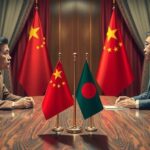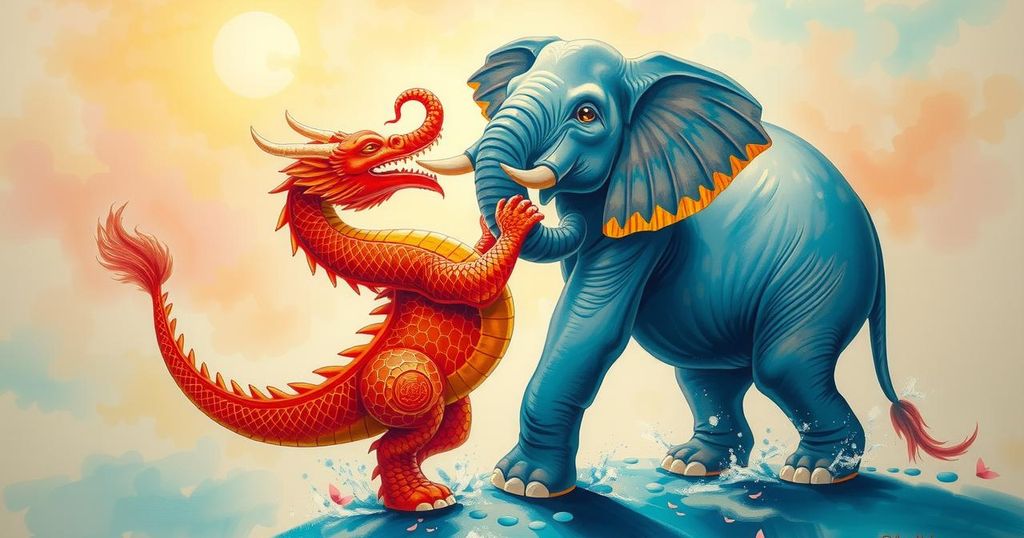Bangladesh-China Relations: A New Dawn in Cooperation and Exchange
Chief Adviser Professor Muhammad Yunus asserts that Bangladesh aims to rebuild itself by learning from China’s development experience. He emphasizes the importance of the strong bilateral relationship, highlighted by economic cooperation, trade, and cultural exchanges. The 50th anniversary of diplomatic ties sets the stage for expanded collaboration between Bangladesh and China.
Chief Adviser Professor Muhammad Yunus articulated that the interim government’s mission is to rebuild a prosperous Bangladesh, drawing inspiration from China’s development models. In an interview with Xinhua, he stated, “Everybody in Bangladesh is inspired by what China has achieved.” He expressed optimism about elevating bilateral relations to a new phase, emphasizing that China is a good friend and that the relationship has historically been strong.
Discussing China’s success in poverty alleviation, Yunus noted the need for nations to focus not only on GDP growth but also on supporting low-income groups. He asserted, “That’s why the Chinese are very successful in reducing poverty very quickly.” Over the years, trade and economic cooperation between Bangladesh and China have flourished, with China serving as Bangladesh’s largest trading partner for 15 consecutive years and nearly 1,000 Chinese firms operating within Bangladesh, creating over 550,000 jobs.
Yunus highlighted that extensive cooperation has led to positive outcomes, stating, “Bangladesh’s imports from China are increasing.” He noted the importance of economic complementarities and expressed hope for increased Chinese investment to further enhance collaboration. Recently, a group of Bangladeshi patients traveled to Kunming, China, indicating growing interest in medical tourism opportunities, with Yunus suggesting that Bangladesh could benefit from developing its healthcare system.
As 2025 marks the 50th anniversary of diplomatic relations between Bangladesh and China, this year is also recognized as the China-Bangladesh Year of People-to-People Exchanges. Yunus referenced ancient connections, such as the journeys of Monk Xuanzang and Buddhist scholar Atisha Dipankar, which have historically enriched both nations and set a strong foundation for ongoing bilateral progress.
Expressing enthusiasm for the future, Dr. Yunus stated, “Bangladesh benefits from its cooperation with China. We can create not only a fast-developing economy, but a new kind of economy where everybody participates.” He envisions a collaborative relationship expanding beyond economic ties to include cultural exchanges, asserting that while the past 50 years have been thrilling, the next half-century promises even greater opportunities for collaboration.
He concluded with a strong desire for mutual benefits, saying, “That’s what we’re looking forward to. (We will discuss) how to make sure that we share things together and make a journey together to achieve the things we collectively felt very strongly about.”
In summary, the relationship between Bangladesh and China is poised for a transformative phase as articulated by Chief Adviser Professor Muhammad Yunus. The inspiration from China’s poverty alleviation efforts and the strong trade ties highlight the potential for deeper collaboration. With upcoming celebrations of their longstanding diplomatic relations, both countries are focused on fostering comprehensive economic and cultural exchanges to ensure mutual benefits and sustained growth.
Original Source: www.bssnews.net








Post Comment